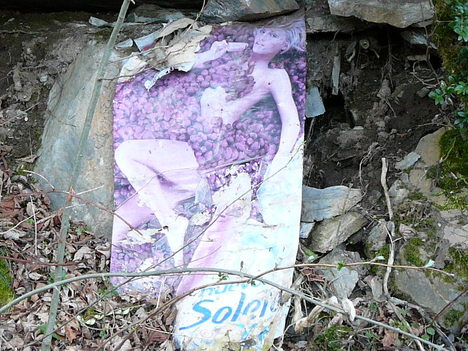Transhumance is in the air, so here’s a smutty song from a commie from Zaragoza:
Los pastores se van, se van,
Los pastores lloran, lloran:
¡ay de mí, pobre pastora!
¿con quién follarás tú ahora?
Rejigged:
The shepherds are going, they’re going again,
The shepherds are weeping, they’re wailing this strain:
“Alas, alack, oh Phyllis my dear,
Who will you fuck now you’re in the clear?”
What the shepherds will get up to is just as unpredictable. The mountains here are quieter than 200 years ago, when the local rector apparently threatened to excommunicate the entire village if they didn’t prevent young girls from witnessing and imitating the beasts at work in springtime, but there’s still the odd hint of lust in the hedgerows:

Lonely shepherdess
[
A brief inspection of Corde reveals this verse in another form, credited by Rafael Alberti to the cowherds of Luarca, Asturias:
Los vaqueiros vanse, vanse,
Los vaqueiros lloran, lloran,
¡ay de mí, pobre, cuitado,
con quién dormiré yo ahora!
]
Similar posts
Back soon

There’s quite a good description of the pleasures of human-ovine intercourse in the second volume of Yannis Ritsos’s Iconography of Anonymous Saints, which is a beautiful neglected Greek classic.
I’ll ask my mum to get me it for Xmas
In praise of the British sheep:
From Hone’s Every-Day Book http://www.uab.edu/english/hone/etexts/edb/day-pages/034-february03.html
“St. Blase lived in a cave, whither wild beasts came daily to visit him, and be cured by him”. Hmm, “cured”.
St Blase must be related to Boccaccio’s desert hermit, who persuaded sweet young Alibech to let him put the devil back in hell.